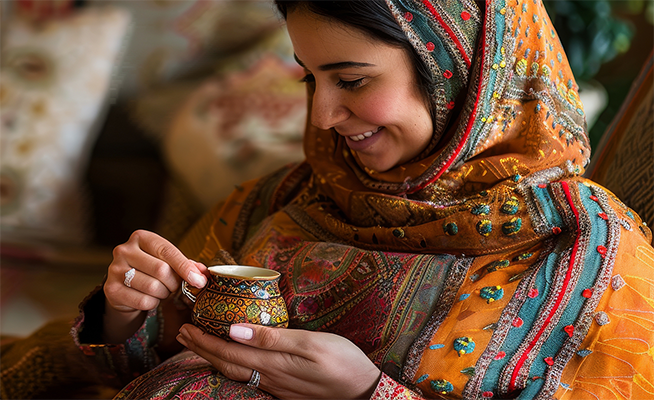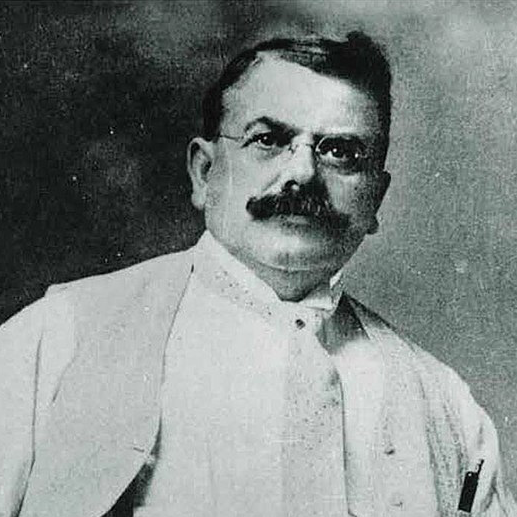

Removing barriers in emerging countries to care and helping people live healthier, longer lives
In emerging countries, many people with serious conditions such as cancer struggle to get the care they need2,3. One reason is the difficulty in accessing advanced treatments, such as biologics3.
We believe the best healthcare solutions reach those in need. That’s why we’re expanding access to the latest therapeutics, like biologics, in emerging countries through our growing biosimilars portfolio.
Biologic medicines are highly advanced, complex treatments made from living organisms such as bacteria or animal cells1. Biologic treatments have been proven to be effective in treating a range of serious conditions including cancer, autoimmune diseases, and diabetes1.
Biosimilar therapies are high-quality medicines that closely mirror already approved biologic medicines (‘reference biologics’), with no meaningful difference in terms of purity, safety or efficacy1. A strong regulatory approval pathway ensures biosimilars are just as safe and effective, backed by 6 to 9 years of extensive testing to confirm they deliver the same clinical benefits. More cost effective1 and accessible, biosimilars offer additional treatment options, helping more people, especially in emerging countries, benefit from lifesaving and life-changing transformative medicines1.
Chronic conditions, such as cancer, are expected to grow rapidly in emerging countries. For example, it is projected that cancer cases will increase by 90% in India and 83% in Latin America over the next 50 years4, compared to 25% in Europe4. Meanwhile, China represents a quarter of all new cancer cases worldwide and over 40% of the world’s total for several categories5. And in Malaysia, cancer incidence is predicted to double by 20406.
Expanding the use of biologic and biosimilar medicines in emerging countries can significantly improve the health of millions of people, elevating standards of care and helping ensure people get the medicines they need7-9.
With our medicines business focused solely on emerging countries, at Abbott, we are committed to making high-quality medicines, including biologics and biosimilars, more accessible to more people in more places than ever before.
Abbott is expanding access to biologics in emerging countries through a growing portfolio of biosimilars so that people with life-threatening diseases can live healthier lives and benefit from the latest medical developments.
We partner with leading biotechnology innovators to deliver high-quality biosimilars in emerging countries. Thanks to our extensive footprint across emerging countries, we help ensure the reliable supply and delivery of quality medicines in emerging countries.
We help to overcome barriers to biosimilar uptake, which include lack of awareness of biosimilars, supply chain disruptions, and a range of different regulations. We collaborate closely with key stakeholders to help tackle these barriers, such as the European Society of Medical Oncology (ESMO), the American Society of Clinical Oncology) ASCO and Medicines for Europe.
For example, we partner with medical associations and universities to help share the scientific knowledge on biosimilars among the medical community to increase awareness and understanding of biosimilars. We also facilitate cross-sector partnerships to help find effective ways to streamline regulatory frameworks around biosimilars.

We only deliver products that we would trust for our own families.
All our biosimilars undergo rigorous testing through clinical trials to ensure they deliver the same clinical benefits as the reference biologic. They are evaluated and approved by the same trusted regulators as reference biologics, such as the U.S. Food and Drug Administration (FDA) and the European Medicines Agency (EMA)
We also take additional steps – such as regular audits of our suppliers – to ensure nothing is left to chance.

Abbott has a long and proud 135-year history of delivering safe and effective medicines, including biologic products.
Abbott launched the first fully human monoclonal antibody therapy, which has become one of the most successful and widely used biologic medicines in the world, revolutionizing the treatment of autoimmune diseases including rheumatoid arthritis, psoriasis, Crohn’s disease.
GLO2358835